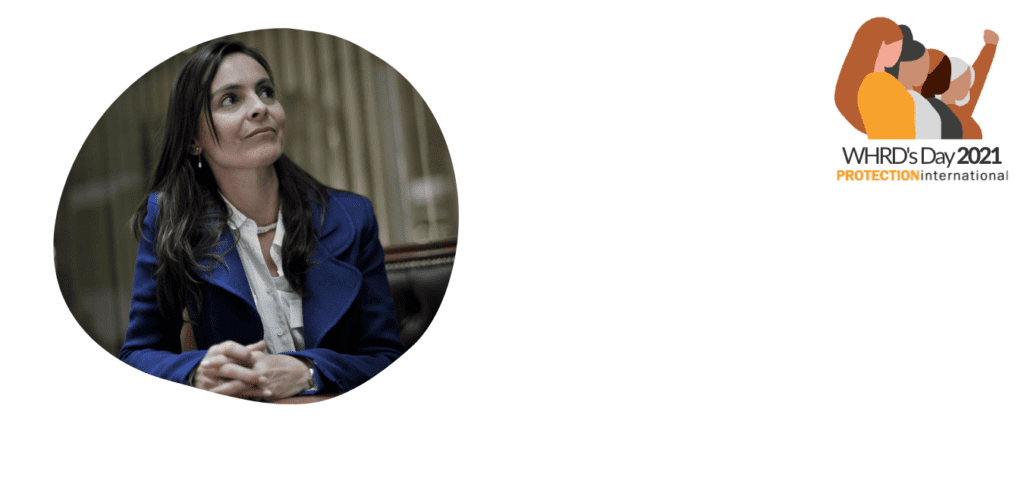29 November & 10 December 2021
Interview with Aída Pesquera
Country Representative for PI in Colombia and Brazil
On the occasion of International Women Human Rights Defenders Day (29 November) and Human Rights Day (10 December) we asked some of the women human rights defenders working for PI about their experiences, passions and visions for a better future.What inspired you to become a human rights defender? What was it (or who was it) that set you on this path?
Growing up in Colombia, the injustices happening around me have never gone unnoticed. For more than 20 years, I have been working alongside rural women human rights defenders in different contexts. I continue to be inspired by women with whom I have lived and shared everyday life, especially those who have overcome so much adversity.
Are there sufficient protections and mechanisms of support for women human rights defenders (WHRDs) in Colombia?
Not at all. Women in South America are cruelly murdered and threatened with the loss of their lives or that of their loved ones for defending the forests, rivers, or paramos from the greed of transnational companies. Existing protection measures do not fit rural women´s needs for protection. They are known as interlocutors by public entities and by the media, who consistently underestimate their capacities to make protection proposals in defense of their rights and their communities.
What has been your proudest moment thus far while working for PI?
Every day that I hear an Indigenous, black, or peasant woman raise her voice, I feel honored by the possibility of being close to them. I have had many opportunities to feel happiness and pride for the work that I do.
If I had to mention just a few, I would say that a very proud moment was when I accompanied rural women in their participation in designing a dialogue with the Fuerzas Armadas Revolucionarias de Colombia—Ejército del Pueblo (FARC-EP) and the government concerning the Peace Agreement signed between them in Colombia. This was a historical moment, as they had never been able to raise their voices as publicly as they did at that moment.
Separately, I also had the opportunity to accompany the National Platform for the Advocacy of Rural Women in Colombia, which strengthened their capacities to make their voices heard. One day they managed to organize an event in which Indigenous, black, and peasant representatives demanded responses from the candidates for the presidential elections. The media covered the event, and it helped demonstrate to the public at large that these powerful women have a deep understanding of the reality of their country, that they are key to the preservation of the ancestral memory of the communities, and that they have very important public policy proposals for defending environmental and territorial rights.
In your opinion, what have been the most important cultural changes concerning gender equality and women’s rights that you’ve seen take place during your lifetime?
The realization of the right to abortion without restrictions in several countries is a key advancement, as well as the increasingly frequent discussions and decisions on same-sex marriage. I believe that these are very significant advances so that women can freely exercise their rights.
How does being a woman manifest itself in your daily human rights protection work?
I believe that as women activists and defenders, we have to make additional efforts to demonstrate that our opinions and proposals are legitimate and valid. I feel this when I talk to public authorities or to a man with macho logic every day. People like this assume that women are good at “taking care” of others but not at developing intelligent and viable proposals for protection. This, of course, is just not true.
What advice do you have for young women from Colombia who are witnessing injustices?
Join others and fight for what you think is fair.
Looking forward, what gives you hope?
It gives me hope to see women united and organized for common causes. I believe that the necessary force to change a predominantly patriarchal world is there, in the articulation of women in their movements.
What is your favorite piece of poetry (related to human rights or the right to defend human rights)?
Soy mujer.
Y un entrañable calor me abriga
cuando el mundo me golpea.
Es el calor de otras mujeres,
de aquellas que hicieron de la vida
este rincón sensible, luchador,
de piel suave y corazón guerrero.


